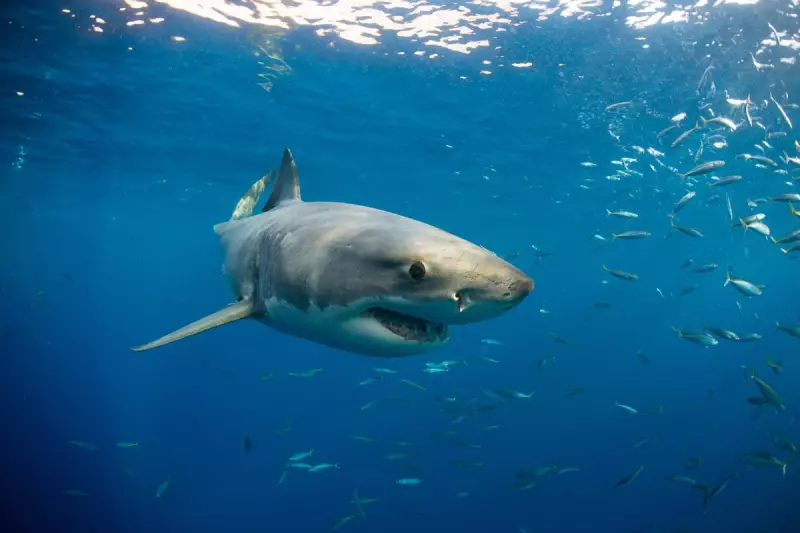
In a development that is captivating marine biologists and unsettling swimmers, the legendary great white shark is being detected much further north than usual, with multiple individuals now prowling the waters off the coast of Maine, USA.
The non-profit marine research group OCEARCH, renowned for its global shark-tracking efforts, has reported a cluster of detections from its tagged predators in the Gulf of Maine. This includes a nearly 4-metre, 500-kilogram male named Forky and an even larger 4.3-metre, 520-kilogram female named Nukumi, a shark believed to be over 50 years old.
A Shift in Territory
Historically, great white sightings in this region were considered anomalous. Their typical hunting grounds are in warmer, more temperate waters further south. The consistent presence of multiple tagged sharks suggests a significant and potentially permanent shift in their migratory patterns and range.
Experts point to a confluence of factors driving this change. The primary driver is believed to be the pursuit of prey. The Gulf of Maine is a rich feeding ground, and sharks are likely following dense populations of seals and fish. Furthermore, rising sea temperatures due to climate change may be making these historically colder latitudes more hospitable for the apex predators.
What This Means for Humans
The arrival of great whites has inevitably raised concerns about public safety. However, scientists are quick to urge perspective. While the risk of a shark encounter can never be zero, statistically, it remains exceedingly low. Swimmers and surfers are advised to be 'shark smart':
- Avoid swimming near seals, a primary food source.
- Steer clear of areas where fishing is occurring.
- Refrain from swimming at dawn or dusk when sharks are most active.
- Avoid wearing shiny jewellery, which can resemble fish scales.
The focus, researchers argue, should be on coexistence and understanding. The presence of great whites is a sign of a recovering marine ecosystem, given their crucial role in maintaining the health of ocean food webs.
A Window into The Deep
OCEARCH's tracking data provides an unprecedented public window into the secretive lives of these magnificent creatures. By following their movements in real-time, scientists can gather critical data on their migration, mating habits, and the health of our oceans, turning a moment of surprise into an opportunity for groundbreaking research.





